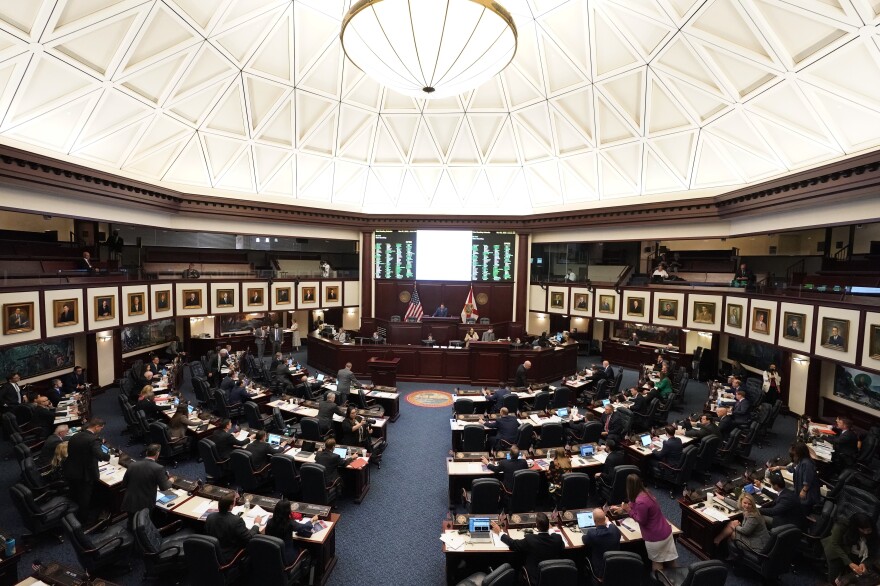The Florida legislature is past the midway point of this year’s lawmaking session the state House and Senate chambers will soon begin negotiating a final budget plan for the upcoming fiscal year. Both proposals have received bipartisan support, but Democrats say their 'yes' votes on the proposals do not mean they agree with everything in them.
Both spending plans exceed $113 billion and come with increased funding for education, pay increases for state employees, and extra support for environmental issues giving lawmakers on both sides of the aisle little to complain about.
“I’m proud of this budget. I’m happy that you know we’ve got something in there for everybody, we had a unanimous vote today which means that I think we hit the right spot to invest in the needs of Floridians," said House Speaker Paul Renner shortly after the chamber approved its plan.
There are, however, a few differences between the House and Senate proposals. For one, There’s a $93 million sticking point in funding for Enterprise Florida and Visit Florida, with the House proposing a complete cut of the state-funded recruiting programs.
Increases in pay for state employees will also have to be negotiated between chamber leaders. As of now, the Senate would like to increase pay for state workers by 6%, the House currently has it at 3%. Renner says he believes lawmakers can come together and agree on a final spending plan before the May 2nd deadline. Budgets need to be on the desks of lawmakers by that day in order for the legislature to meet the 72-hour "cooling off" period for review and to adjourn on time.
“I’m confident as we have had this big session as a result of great collaboration, we will collaborate in the same fashion. We will have a landing spot that if people were happy with the house budget today, they may be even happier when we bring it back after we hear from everybody," he said.
House Democrats have noted a few areas they take issue with. One has to do with the state’s newly expanded universal school voucher program and how the two chambers are funding it. The Senate budget creates separate categories for public schools and the voucher program—with $2.2 billion total for the vouchers. The House keeps public school and voucher spending together with $110 million in reserves in case the voucher program exceeds the estimates. House Democrats would like to see something closer to the Senate’s model, as it appears to have more in reserves for the program.
“You know my concern with the vouchers is we are not measuring, we are not keeping track of the students and making sure that they will get a good quality education when we give them this $8,000," said Orlando Democratic Rep. Bruce Antone.
Other issues Democrats aren’t happy with include funding for moving undocumented migrants around the country and the expansion of Florida’s State Guard. Tampa Democrat House Minority Leader Fentrice Driskell says even though the spending plans received bipartisan support, that doesn’t mean Democrats support everything in it, as evidenced by a failed budget amendment to remove funding from the migrant relocation program.
“You saw that there was a unanimous vote in favor of the budget but I just wanted to point out that even though you saw that unanimous vote it doesn’t mean that the Florida House democrats agree with every element of that budget and it’s very important to make that distinction.”
As final budget negotiations begin, both sides of the aisle seem to be pleased with the Republican-led effort to fund mental health programs, environmental projects, and the expansion of programs involving arts and culture.








